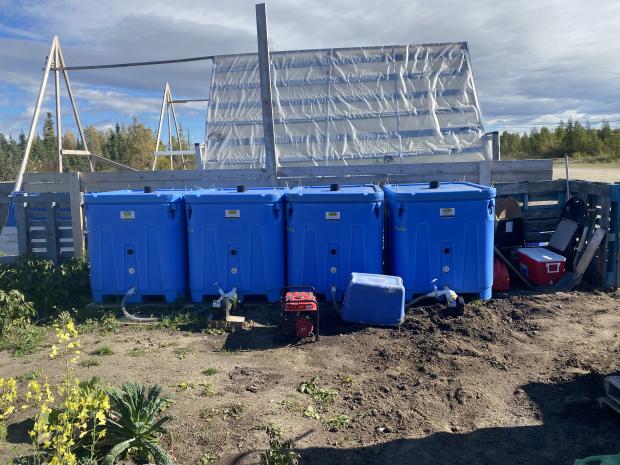Composting has taken root in Tulita; which means so have fresh vegetables.
In 2020-2021, the Hamlet of Tulita received funding from the Waste Reduction and Recycling Initiative for their Community Gardening Compost Project. The main activities at the time consisted of working with a consultant to get advice on how to get closer to growing fresh produce and reducing food waste in their landfill.
Since then, the program has blossomed. They trained over 50 communities members on how to compost, and provided part time jobs for three compost specialists. They set up 25 individual compost areas for local gardeners, and gathered around 4,500 pounds of food waste and paper from local businesses and residents to turn into compost.

None of this shocks Tim Tomczynski, economic development officer for the hamlet.
“I was not really surprised. We have a strong Gardening Society in Tulita which welcomed composting and all of its benefits,” he says. “Our program has had some bumps along the way, steep learning curve, but overall it has been a huge success.”
You can’t grow without good soil, and their program proves food waste has a destiny beyond death in a landfill.
“Our inspiration came from our community garden. The cost of shipping soil is not feasible. We were concerned with supplying the growing number of private plots and our community garden expansion with soil,” he says. “The answer was easy, set up a compost program. This way we can boast ‘Grown in Tulita’, plus the benefits of reducing the amount of waste and paper going in to our landfill.”
That amount of waste can’t be understated. Food waste fills landfills around the world, but in small communities like Tulita, with an equally small landfill capacity, keeping things out of the waste stream is a priority.
According to Tomczynski, they average about 500 lbs of waste a week going to their composting program, instead of the landfill. And he expects that number to keep growing.
“We also have commercial entities saving compost materials for us so we have seen a steady increase of people wanting to be part of our program.”
He says they have big plans as the program rounds the corner on it’s second year.
“Our next step is to investigate additional ways and areas to expand our composting program. We are searching for safe cost-effective ways to maximize our compost output,” he says, adding they’re also constructing three growing domes to expand both the garden and the growing season. “Composting and our Community Garden has been a great addition to our community. Our compost program not only helps the environment, it supplies us the material needed to move a few steps closer to fresh vegetable sustainability.”

For more information on the Waste Recovery and Recycling Initiative, please visit https://www.enr.gov.nt.ca/en/services/waste-reduction-and-recycling/funding-waste-reduction-and-recycling-initiative


